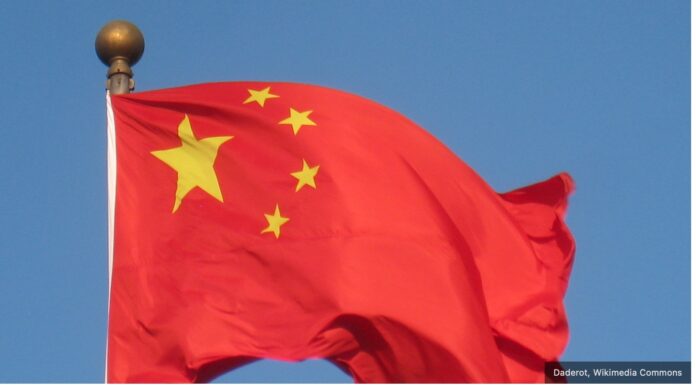By GREGORY WISCHER, MORGAN BAZILIAN, JAHARA MATISEK
Last week, China imposed export bans on antimony, gallium, and germanium—all of which are listed on China’s dual-use export control list. Other minerals on the list and, thus, at risk of future bans include aluminum, magnesium, and zinc, among others. Beyond their economic importance, many of these minerals have military applications. For example, tungsten superalloys are used in military turbines and armor-piercing munitions, while bismuth is used in ammunition and alloys for defense.
With many minerals, the U.S. government can increase domestic mining, processing, and recycling to help mitigate future supply cutoffs from China. Of course, building and expanding domestic capacity will take time, significant capital, and appropriate government policies, but it can be done.
However, for some minerals—such as bismuth and tungsten—the United States simply lacks the mineral reserves, scrap, and substitutes to fill supply gaps from a Chinese export ban. For instance, China supplied over 60 percent of America’s bismuth consumption from 2019 to 2022, and the United States has not produced bismuth since 1997. The U.S. National Defense Stockpile also has no inventory of bismuth.
For such minerals, the U.S. government—in addition to seeking to boost domestic production—should both increase inventories in the National Defense Stockpile and sign right-of-first refusal (ROFR) offtake agreements with existing overseas mineral producers. Such steps will help buttress the United States against future export bans.
With stockpiling, the U.S. government should acquire minerals from domestic producers when possible but prioritize acquiring supply wherever it is available including from China. For instance, with both bismuth and tungsten, China is far and away the world’s largest producer: it produces 80 percent of the world’s bismuth and 81 percent of its tungsten.
The second policy is signing ROFR offtake agreements with existing overseas mineral producers for their uncontracted production. In ROFR agreements, the U.S. government would have the first right—but not the obligation—to purchase a certain volume of mineral production before it is offered to other buyers.
To secure ROFR offtake agreements, the U.S. government could invest in overseas mineral projects or expansions. Already, the U.S. government has invested (through an intermediary) in two overseas mineral projects: a nickel-cobalt mine in Brazil and a rare earth processing project in South Africa.
While ROFR offtake agreements are common with prospective mineral producers, the timeline for commissioning new production is lengthy and often jeopardized by technical (e.g., ramp-up issues) and jurisdictional (e.g., regulations) risks. Moreover, ROFR offtake agreements for future mineral production cannot supply minerals if China imposes export bans with immediate effect. Having ROFR offtake agreements for existing production could immediately help fill supply gaps caused by adversarial export bans.
The U.S. government should prioritize signing ROFR offtake agreements with firms operating in allied and partner countries, such as Australia, Canada, Japan, and South Korea. The U.S. government should also prioritize inking agreements in countries least likely to face disruptions from a possible U.S.-China conflict in the western Pacific.
For example, Australia and Austria produce about the same volume of tungsten, yet because shipping across the Atlantic Ocean would be more secure than shipping across the Pacific Ocean in a U.S.-China conflict, the U.S. government should first prioritize agreements for tungsten with Austria over Australia. In other cases, avoiding the western Pacific is not possible. For instance, Japan and South Korea are highly exposed to a U.S.-China conflict over Taiwan, but they are the only major bismuth producers that are U.S. allies.
Demonstrating tungsten’s importance for the U.S. military, U.S. tungsten imports spiked during World War I, World War II, and the Korean War, and U.S. imports would likely spike again in a potential conflict against China. The U.S. government would be well-served in pre-emptively securing these imports and similarly important war minerals through ROFR offtake agreements.
Controlling the overseas supply of these military minerals can have direct combat implications, too. The Tungsten Institute writes, “Before World War II was started, Germany had bought up virtually the entire world supply of off-grade tungsten ore.” This tungsten proved critical in Germany’s nearly successful North Africa campaign: German tanks used armor-piercing munitions with tungsten carbide cores with dangerous effects against British tanks.
China’s recent mineral export ban is yet another wake-up call for the U.S. government to reduce America’s reliance on China for critical minerals. For many minerals, the United States can indeed rely on domestic resources to offset future mineral cutoffs from China, but for other minerals, it cannot—it must depend on foreign actors. In such cases, the U.S. government should preemptively stockpile and sign ROFR offtake agreements with overseas mineral producers. These proactive steps will help fortify the United States against future mineral export bans.
Gregory Wischer is a fellow at the Payne Institute for Public Policy at the Colorado School of Mines.
Morgan Bazilian is the director of the Payne Institute for Public Policy at the Colorado School of Mines.
Lt Col Jahara “Franky” Matisek is a military professor in the National Security Affairs department at the U.S. Naval War College and fellow at the Payne Institute for Public Policy. The views expressed in this article are his own.
This article was originally published by RealClearDefense and made available via RealClearWire.
